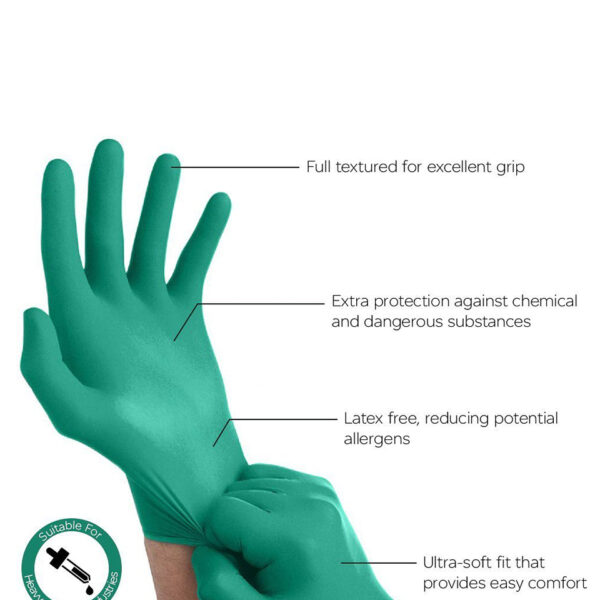
Getting a piercing is a popular way to express your style and personality. A new piercing can be exciting in your ears, nose, or any other body part. However, taking good care of your piercing is essential to avoid infections and complications. In this guide, we’ll go over how to prevent and treat piercing infections and complications, ensuring you enjoy your new look without any worries.
Why Do Piercings Get Infected?
Piercings can get infected when bacteria enter the piercing site. This can happen if proper hygiene isn’t followed or the piercing Area is exposed to unclean environments. Touching the piercing with dirty hands or using contaminated jewelry can introduce harmful bacteria.
Additionally, swimming in pools, hot tubs, or lakes before the piercing is fully healed can increase the risk of infection due to bacteria in the water. Piercings may also become infected if the jewelry changes too soon or the body reacts to the metal. Ensuring that you follow proper aftercare instructions and maintain good hygiene can significantly reduce the risk of infection.
How to Prevent Piercing Infections
Choose a Reputable Piercing Studio
When getting a piercing, going to a reputable studio is important. Look for a place that follows strict hygiene practices and uses sterilized equipment. The piercer should also be experienced and use high-quality materials.
Follow Aftercare Instructions
After getting your ear piercing, follow the aftercare instructions provided by your piercer. This usually includes cleaning the Area with a saline solution and avoiding touching or twisting the piercing. It’s essential to keep the piercing clean and dry.
Avoid Swimming Pools and Hot Tubs
For the first few weeks after getting a piercing, avoid swimming pools, hot tubs, and other bodies of water. These places can introduce bacteria to the piercing, increasing the risk of infection.
Don’t Change the Jewelry Too Soon
Keep the original jewelry in place for the recommended healing time. Changing the jewelry too soon can irritate or increase the risk of infection. Make sure to use high-quality jewelry made from materials less likely to cause allergic reactions.
Keep Your Hands Clean
Always wash your hands before touching your piercing. This helps prevent the transfer of bacteria from your hands to the piercing site.
Common Piercing Complications and How to Handle Them
Keloids
Keloids are raised scars that can form around the piercing site. They are more common in some people and can be treated with silicone gel or steroid creams. If you notice a keloid forming, consult your piercer or dermatologist.
Piercing Bumps
Sometimes, small bumps may develop around the piercing. These bumps can be caused by irritation or an infection. If you notice a bump, try cleaning the Area with saline solution and avoid touching it. If the bump doesn’t go away, see a professional for further treatment.
Allergic Reactions
Some people may have allergic reactions to the metal in their piercing jewelry. If you experience redness, itching, or swelling, it might be due to an allergy. Switching to hypoallergenic jewelry, such as titanium or surgical steel, can help reduce the risk of allergic reactions.
Infections
Infections can occur even if you follow all the care instructions. If you notice signs of infection like redness, swelling, or pus, it’s important to act quickly. Clean the Area with a saline solution and avoid removing the jewelry, as this can cause the hole to close up and trap the infection inside. If the infection doesn’t improve or gets worse, seek medical attention.
Treating Piercing Infections
- Clean the Area Regularly: Use a saline solution to clean your piercing regularly. This helps to keep the Area free from bacteria and promotes healing. Avoid using alcohol or hydrogen peroxide, as these can be too harsh and may delay healing.
- Use an Antiseptic Solution: If your piercer recommends it, you may use an antiseptic solution to help treat minor infections. Follow their instructions carefully and don’t overuse the solution, which can lead to irritation.
- Avoid Irritants: Avoid using harsh soaps, perfumes, or lotions near your piercing. These products can irritate the Area and may worsen an infection.
- Consult a Healthcare Professional: If you have a severe infection or are unsure about treatment, consult a healthcare professional. They can provide proper guidance and may prescribe antibiotics if needed.
Ear Piercing Specific Tips
The same general rules apply to those who have just had an ear piercing. Make sure to follow the aftercare instructions provided by your piercer. Avoid changing earrings too soon, and use hypoallergenic materials if you have sensitive skin.
Taking these steps and being mindful of your piercing care can help prevent infections and complications. Enjoy your new piercing, and remember that good hygiene and proper aftercare are vital to keeping it healthy and beautiful!
Conclusion
Piercings are a fun way to express your personality but require proper care to prevent infections and other complications. By choosing a reputable studio, using high-quality jewelry, and maintaining a strict cleaning routine, you can enjoy your piercing without worry. If you encounter any issues, from infections to keloids, don’t hesitate to seek professional advice to ensure a smooth healing process. With some care and attention, your piercing can remain a beautiful addition to your look for years.











